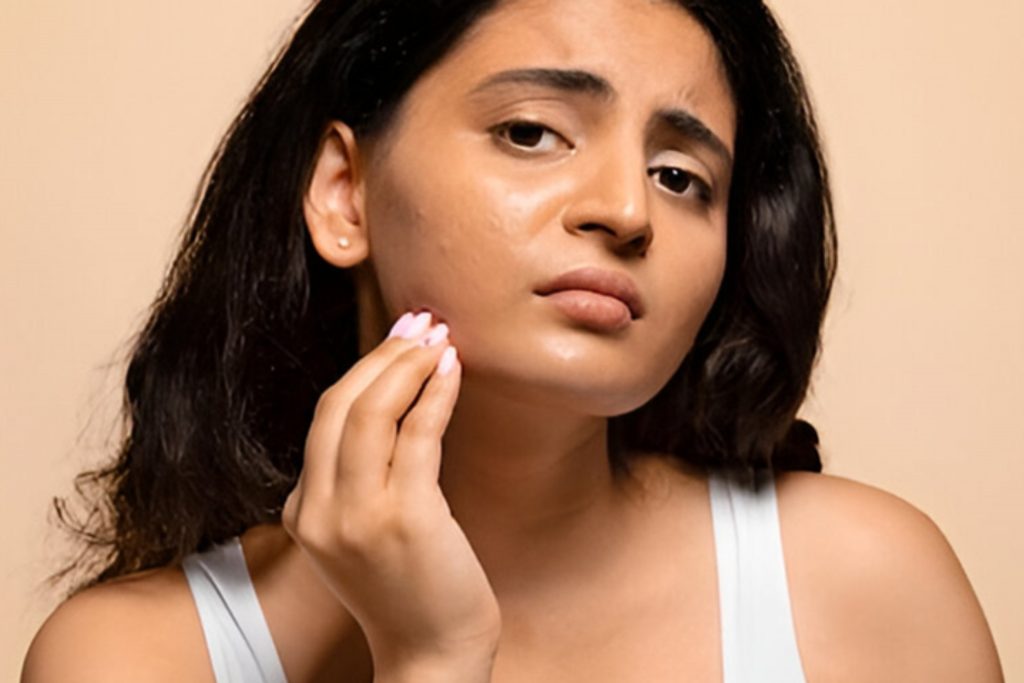Why Skipping It Might Be Sabotaging Your Skin
If you have oily skin, using a moisturizer might feel unnecessary—or even wrong. Many assume moisturizing will only add to the shine or cause breakouts. But skin biology tells a different story: oily skin needs hydration, too—just not in the way dry skin does.
Just like we explored in our previous breakdown of serums (where actives aren’t just “expensive water” but strategic formulations), moisturizers also fall into that category where how they’re built matters more than what they look or feel like on the surface.
Let’s unpack why oily skin can still be dehydrated—and why the right moisturizer may be exactly what’s missing.
Oily Skin ≠ Hydrated Skin
The biggest myth is assuming that oily skin means it’s already well-moisturized. In reality:
- Sebum (oil) helps prevent water loss but doesn’t actually hydrate the skin.
- Moisture refers to the skin’s water content, which is governed by your barrier’s ability to hold on to hydration.
So yes—your skin can be slick with oil and still be dehydrated beneath the surface. This is especially common in those using exfoliants, acne treatments, or harsh cleansers, which strip moisture without restoring balance.
What Happens When You Skip Moisturizer
When oily or acne-prone skin isn’t given enough hydration:
- It may overcompensate by producing more sebum
- The skin barrier weakens, leading to irritation or sensitivity
- Surface dehydration may cause flaky patches—even if the skin still feels oily
- It can make actives like retinoid or acids more irritating than necessary
Skipping moisturizer doesn’t “dry out” acne—it confuses the skin into a protective overdrive.
The Right Moisturizer Can Actually Reduce Oiliness
The solution isn’t to skip moisturizers—it’s to choose the right kind. Modern formulations for oily skin strike a careful balance:
- Humectants (like Glycerine and Hyaluronic Acid) attract water to the skin
- Barrier-repair ingredients (like Panthenol, Ceramides, and Colloidal Oatmeal) lock in that hydration
- Non-comedogenic textures prevent pore congestion while allowing actives to do their work
When a moisturizer hydrates without suffocating the skin, oily skin often regulates itself—producing less excess oil over time.
Where Formulation Makes the Difference:
Some of the most useful moisturizers for oily skin are those that don’t advertise oil control—but offer balance, support, and hydration. For example:
Aveil Crème Avoine Oatmeal Moisturizer
- Formulated with Colloidal Oatmeal, Panthenol, and Ceramides
- Designed to repair barrier function while staying light and breathable
- Suitable even for oily, acne-prone, or sensitized skin
Its non-greasy finish makes it ideal for daily use—even under sunscreen or makeup. And because it’s fragrance-free and pH-balanced, it integrates well into routines with active serums like Vitamin C or Niacinamide, which are commonly used in oily skin regimens.
Using Moisturizer Effectively (Without Overdoing It)
Oily skin doesn’t need heavy occlusive—but it does need moisture. Here’s a balanced way to apply it:
- Cleanse with a gentle, low-foaming cleanser
- Apply treatment serums if needed (e.g., exfoliants, antioxidants)
- Use a pea-sized amount of lightweight moisturizer like Crème Avoine
- Seal with sunscreen in the morning
You’re not layering for the sake of it—you’re layering logically, restoring what your skin needs and nothing it doesn’t.
Final Thoughts
Oily skin needs hydration just like any other skin type. The goal isn’t to dry out the skin—it’s to stop the cycle of dehydration and excess oil.
Just as we’ve seen with serums, the smartest skincare isn’t about adding more steps—it’s about choosing the right formulas. Moisturizers like Aveil’s Crème Avoine Oatmeal Moisturizer don’t just sit on top of the skin; they work with it—replenishing, soothing, and balancing without weight or residue.
Over time, skin that’s hydrated and supported tends to behave better—less shine, fewer breakouts, and more comfort.
